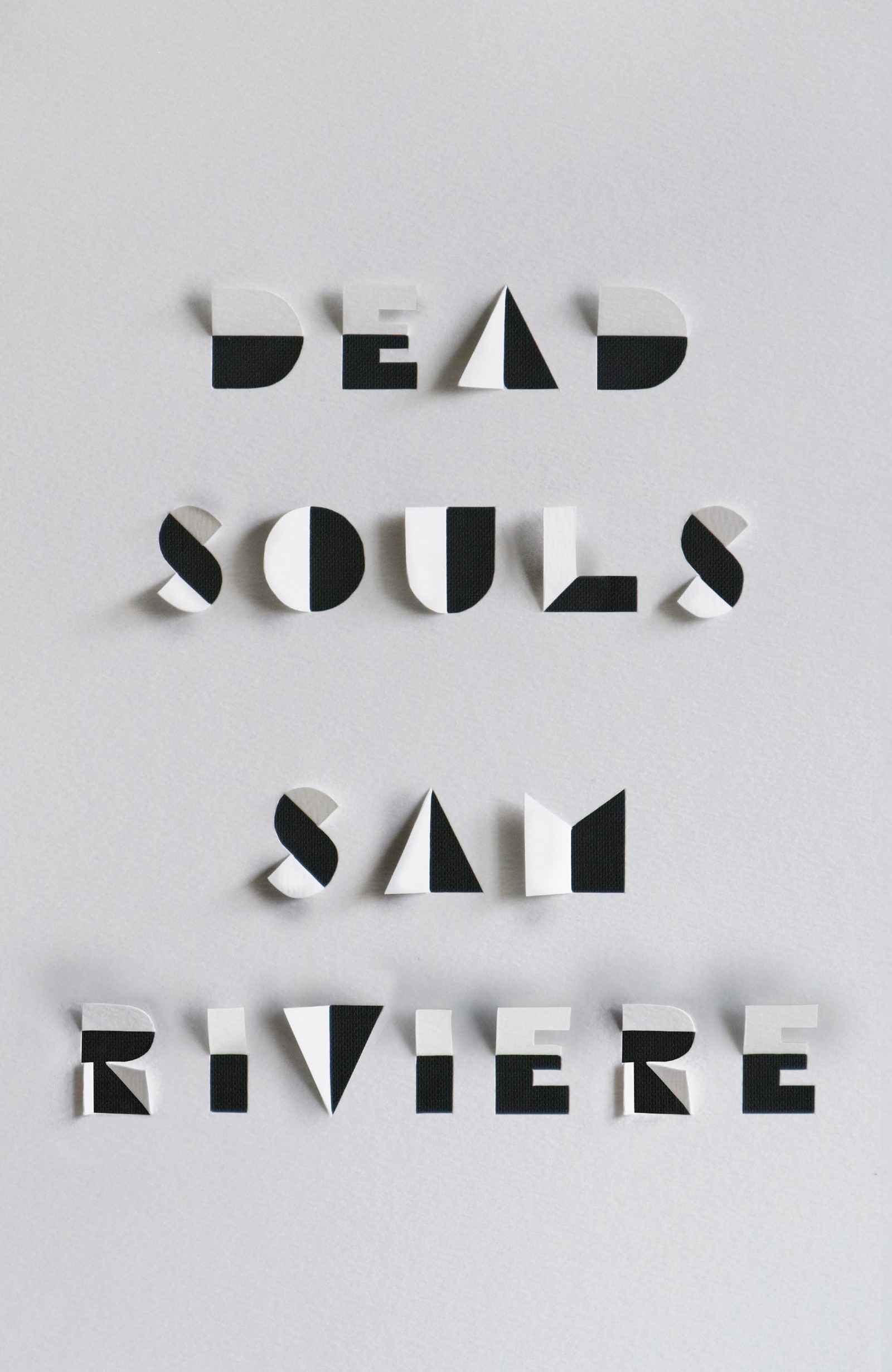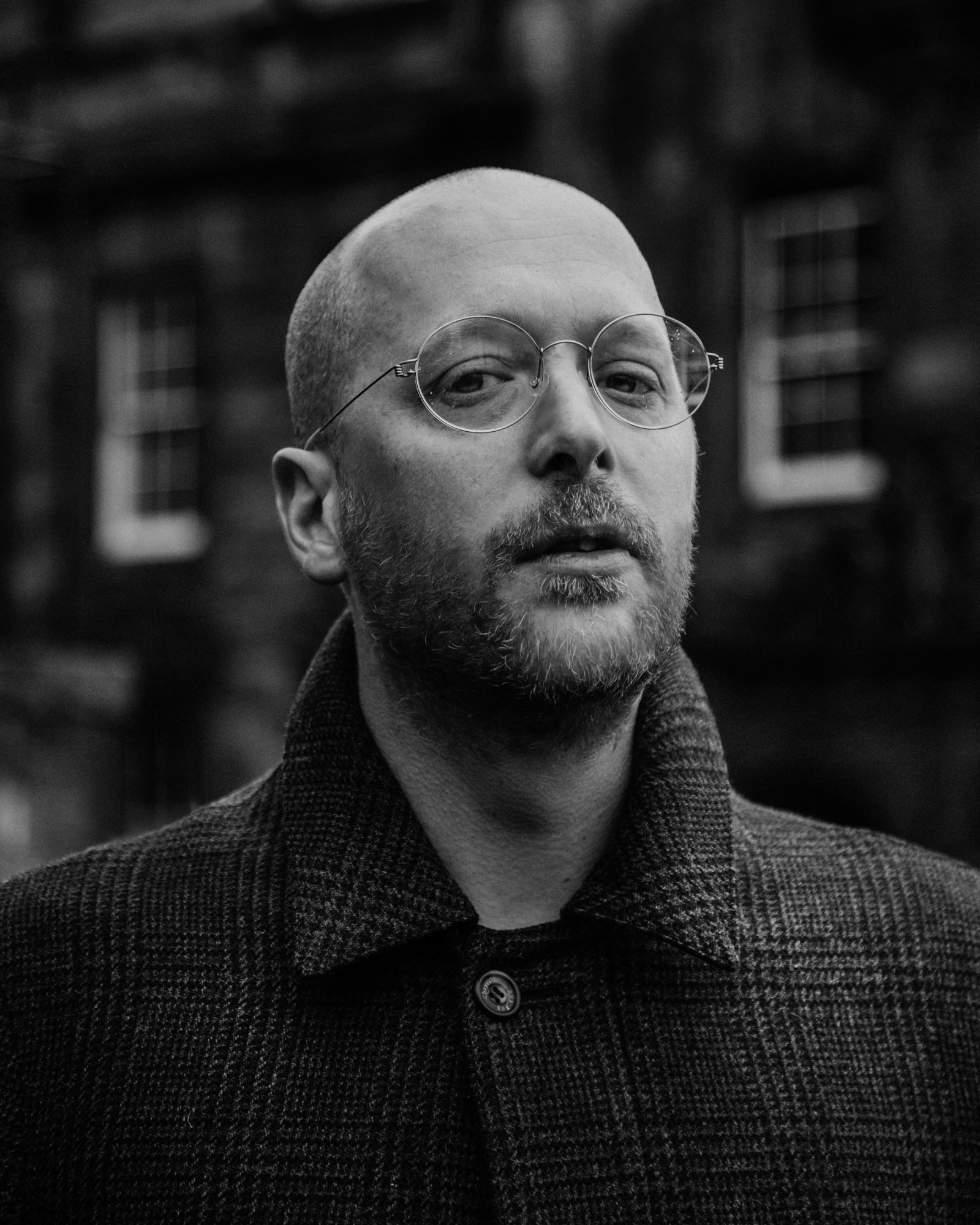Sam Riviere’s debut novel, Dead Souls, is set in a hallucinatory, alternate-world London. In this reality, MI5 has turned into MI7, fingerprints are accepted as payment, and there are unexplained drone fleets flying over the Thames. Poets are also rich, if you can suspend your disbelief that far – thousands flock to the city’s Southbank to hear them perform, and poetry has become the country’s leading cultural currency. (In this land, the small publishing house tote is now more ubiquitous than the band t-shirt).
But there are problems with the sophisticated technology of this upside-down world. A newly-invented plagiarism software is scouring through the work of poets, assessing the originality of their writing with a cold percentage score. Those that fail are cancelled and blacklisted from the industry, never to be heard from again. In the novel, we hear the story of Solomon Wiese, a poet who fell victim to this fate. We meet him at the bar of a Waterloo Travelodge, and listen to him breathlessly regale his rise and fall to the unnamed narrator. It’s a boozy, raging, hilarious and surreal recounting that lasts almost 300 paragraph-free pages, but keeps you enraptured nonetheless.
For Riviere, himself a respected poet of titles such as Kim Kardashian’s Marriage and 81 Austerities, this is familiar territory. Although set in an alternate universe, the book casts a critical glance at our current moment, with cutting social commentary about class, privilege, creative narcissism and political hypocrisy. Days before the book’s release, we caught up with him to find out more about the issues that inspired it.

Dominique Sisley: How have the last few months been for you?
Sam Riviere: I’ve somehow killed the time, but I don’t really remember how. Somehow the time has passed.
DS: Memory loss does seem to be a common symptom of the pandemic.
SR: Yeah. Cognition is getting strange with all of this technology. It’s very tempting to not think about anything, to just follow your phone to where you have to go. And the pandemic has just consolidated that relationship with technology, hasn’t it? I wasn’t on my phone all the time before, but I became more addicted to it because it seemed like a lifeline. I live alone so it was the only way I could communicate with people for quite a long time. The pandemic was probably all planned by tech companies. [Laughs.]. It will all come out in 100 years.
DS: You’re known primarily for your poetry. Was it always your preferred form of writing?
SR: I actually didn’t really get into poetry until my twenties. I was passingly interested, but like everyone I found it a bit intimidating and forbidding. I think once I understood that you didn’t have to understand it I relaxed a little bit. I’ve always read loads of fiction and I started off wanting to write it, but poetry seemed easier and shorter. You can learn a lot about what you’re good at, where you need to control yourself and where you can afford to be more expressive.
“People are tired of this version of events that doesn’t give you any leeway to interpret or invent. You’re just trapped by the realness of everything” – Sam Riviere
DS: Dead Souls reads like a stream of consciousness, delivered with barely a breath over one evening. How did you write it? How long did it take?
SR: It took a year to write. It was like digging a tunnel – I would go back to it every day and hope that it was leading somewhere. Before I started it I had a lot of little ideas that I’d been collecting for years, and I had a pretty good idea of what I thought it would be like. Of course, it turned out somewhat differently, but you adjust things as you go. Effectively I knew where it was heading.
DS: Plagiarism is a central theme of the novel, and one that you’ve visited before in your work. I’m interested to know why you’re so drawn to it?
SR: In poetry, particularly, there’s a sense that when you write a poem you’re supposed to be expressing your true self. I never really understood that. I don‘t really understand when people say art is self-expression, because what is the self? Is it the sum of your experiences, or your particular angle on the world? I don’t know. Your inner self seems to be precisely what you can’t communicate to someone. And I think, because the premiums are so high on the “authentic experience” in poetry, it puzzles me. We all learn the same words, and we all learn language. So why is taking someone else’s language so bad? It’s connected to early capitalism, really; this idea that content belongs to people. But we claim language all the time, that’s mainly what we do when we speak; we cobble together various things we’ve already heard and said before. This idea of authenticity and originality in writing is this ghostly thing that doesn’t really exist. Writing is just reorganising materials and shining a new light on something.
DS: It does feel like the internet has our ruined collective cognition, and that it’s harder than ever to be original with ideas or opinions. I just feel like I’m talking in tweets now, regurgitating the same views I’ve seen before.
SR: Yeah, or sometimes you overhear someone on a bus and they’ll be sharing their opinions about Brexit or about Covid or whatever, and it will be a conversation you’ve heard hundreds of times before. I think we’re in such a heavy saturation of content and information, and because everything’s there we don’t really need to avail ourselves to anything new because we’ve got it at our fingertips.
“There have been some cancellations where it seemed very obvious that people just found them annoying. It seems like the left is quite good at disarming itself in that way” – Sam Riviere
DS: Have you thought about what that might do to culture in the long term?
SR: Fatigue, perhaps. I think we’re seeing it with conspiracy theories – like the popularity of flat earth theory, which is the most insane conspiracy theory, but now actually has quite a lot of traction. Because people are tired of this version of events that doesn’t give you any leeway to interpret or invent. You’re just trapped by the realness of everything. It makes you feel powerless, like a supplicant. So if you subscribe to those conspiracy theories, it makes the world seem more interesting, doesn’t it? You’re in a place that has mystery in it again. Maybe that’s partly what a novel does, it re-enchants the reality we’re in.
DS: In Dead Souls, you talk about the invention of Quantitative Analysis and Comparative System, or “QACS system,” which detects plagiarism in writer’s works and leads to industry cancellations. What are your thoughts on these kinds of cancellations? What do they tell us about our current moment?
SR: There are AIs working on Shakespeare right now, trying to find parts of his plays that are written by different authors. It’s this very cold-eyed, scientific way of looking at art that I feel averse to. I also feel sympathetic to people who’ve been busted for plagiarism in the poetry world over the past ten years. I feel sympathetic towards them, even if sometimes it was done in bad faith. But there are all sorts of other reasons people are dragged into the public eye and shamed. Sometimes it’s with good reason, but sometimes it’s a bit less clear. And once that machinery is in motion, you can’t really do anything.
DS: Do you know anyone who has been cancelled in this way?
SR: Not directly, but I’ve known of several people that were disposed of because they weren’t liked, and there emerged a good enough reason to get rid of them. I’m not talking about people like Harvey Weinstein or abusers, who should rightly be excluded. But there have been some cancellations where it seemed very obvious that people just found them annoying. It seems like the left is quite good at disarming itself in that way, because often these people – although they might be dickheads – could otherwise be useful weapons in political conflict. It comes from this integrity obsession: if there is any hint that someone doesn’t have complete integrity, they’re essentially able to be got rid of.
DS: Is this an area you want to explore more? Are you working on anything else at the moment?
SR: I’ve been working on some poetry using an AI, which has been quite strange. I don’t know if I’ll actually do anything with it but it’s been quite interesting to think about that idea of what’s coming out there – is it me or not? I’m giving control over to something else, but nonetheless, it does seem to express something. But what is that?
Dead Souls, published by W&N, is available now.
